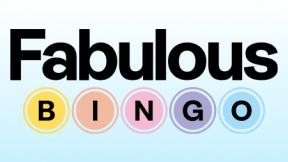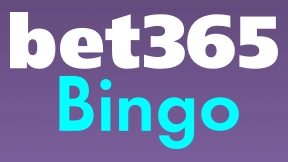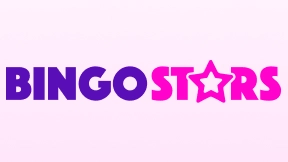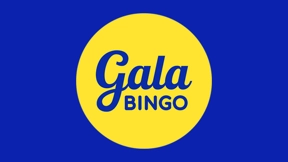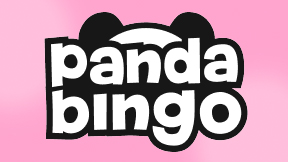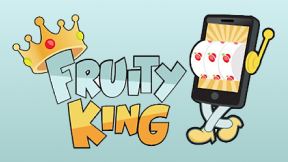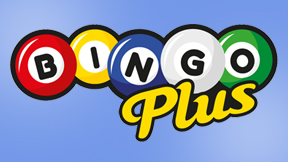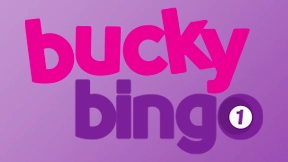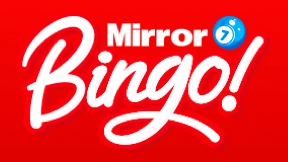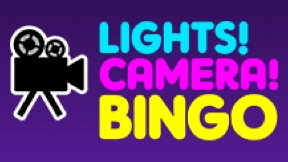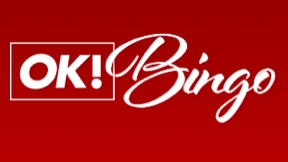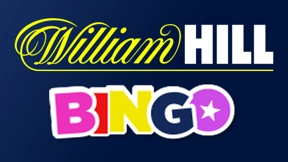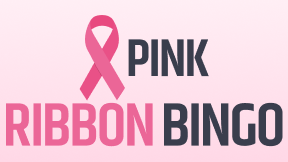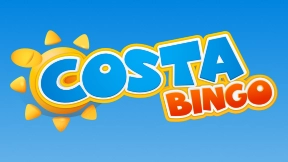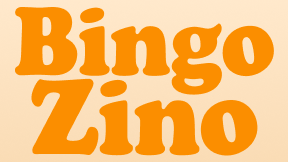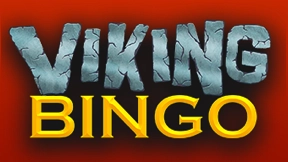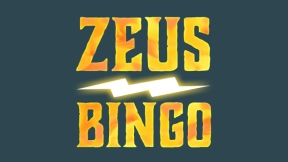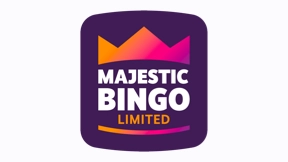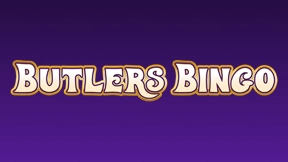So what else is on offer here at BingoPort? If you haven't found what you were looking for in the directory, here are some more recommended sites and categories searched by our players.
Best Sites For Winners
The following bingo sites are great for winning extra prizes. Bingo games are random and usually only have two ways of winning; the lines and a full house. But each of these brands feature games where there's a little extra on top and more ways to win.
1. Mecca Bingo: Five Times More Payouts on Selected Bingo Games
Spend £5 on Bingo, Get £20 Bonus

Mecca Bingo is the glitz and glam home of online bingo. The site boasts a huge variety of exciting bingo, slot and jackpot games, including classics like Fluffy Favourites, roulette, and Age of the Gods. We’ve seen the adverts on TV (who hasn’t?) and were incredibly eager to give this bingo giant a try!
Busy bees of bingo, relax; you can play on your PC, but the Mecca mobile product is a godsend to those with a hectic schedule. All you need is an internet connection, and you can play on your tablet or mobile on the Mecca Bingo app or the website.
There are regular promos and bonuses available for Mecca Players, which we love to see. Some are for a limited time only; when we played, there was a Loose Women prize wheel that expired at the end of the month. There are also plenty of longer-term promotions like the £200K Giveaway, and daily offers which are always available, though the actual offer might change each day.
Mecca Bingo is fantastic because it combines the community of real bingo halls with the ease of online bingo. It’s such a huge brand, players can enjoy a real big-name feel here; nothing feels cheaply done or rushed.
BingoPort Top Tip: A big site name means big prizes; check out the massive bingo jackpots up for grabs over the weekend in the Gold Bingo room!
Mecca Bingo has one of the most diverse selections of prizes, offering the usual prizes but then more enhanced winners' rewards. Some of the most notable are:
- Roll On Bingo with an extra house prize that means players could get anything from 1 to 20 extra prizes even after the house has been called.
- 1 and 2 To Go for a full house? When you missed out on the House prize, you’ll get a share of the separate 1 and 2 To Go prize pots. The different icons reveal what the pot’s paying out for: 1 to go, 2 to go, or both.
- Win Win Bingo. Share the winners feeling with your fellow roomies. These games have an additional pot for all the players – meaning that if you don’t get a line or full house, you can still be a winner.
Exclusive To Mecca
The Winning Wheel: This wheel does exactly what it says on the tin: it brings in the winnings! Once a game of bingo is over, you’re led straight to this feature game. If you’ve bought at least 6 tickets, the wheel will pop into view on your screen and stop on one of the five segments, each of which shows a prize. The prize will then be split between all the eligible players in that room.
2. Betfred Bingo: A Top Bingo Site With and Everyone Wins Games
Betfred is a well-known sports betting brand, prominently located in every local high street with its network of betting shops. However, not everyone knows about Betfred Bingo. This gem is part of the larger Betfred site, and is gaining recognition for its amazing prizes, numerous promotions, and a generous welcome offer featuring bonuses and free slot spins. Betfred Bingo provides an exciting opportunity for players to dive into the world of online gaming. Let's take a closer look behind the scenes to uncover the magic of Betfred Bingo, where players can enjoy a variety of games and potentially win big while taking advantage of their enticing bonuses and promotions.
A surprise entry is Betfred Bingo, but what we know from Sportsbooks is they do love an enhancement to get people playing, and they're renowned for boosting winnings. They run diverse promotions on rooms so look out for seasonal deals like the following:
- Everyone's a Winner: When this is on, you play the Mystery Bingo Room every day, for the chance to win up to £100. The players that miss out on 1 line, 2 lines, house or roll on will win a share of £50 Cash. It will be divided depending on how many tickets have been purchased for that game.
- Betfred's Bunker Bingo room is a cheap ticket penny-style bingo game with BIG prizes. If you can afford to, this represents a more responsible way to max out your ticket allocation and keep the spends low at the same time. You can buy the max amount of tickets, putting you in the top percentage of potential winners by logic of probability.
3. Lottoland: Roll On Winners & Extra Payouts
Stake £20 on Big Bass Bonanza and get 100 FREE Spins with NO WAGERING
Lottoland is an unusual online casino that lets players enjoy a variety of different betting options. As well as bingo, slots, and live casino, you can also bet on the outcomes of different lottery games around the world! This is a kind of betting we haven’t seen before, but we love that you can bet on different international lottery games for the chance to win a prize matching the actual jackpot! Of course, there are also hundreds of slots and a tonne of bingo games to enjoy, as well as promotions while you play. Lottoland is ideal for players who love variety!
Another surprise entry is Lottoland, who have an exceptional Bingo platform hidden amongst the lotto stuff. Lottoland's bingo rooms offer a decent range of enhancements for regular players meaning more prizes for the winners.
- XTG: This refers to “To Go” prizes. For example, if you have 1 number left to go (or 1TG, as we like to say!) and there’s a 1TG prize up for grabs, you’ll get a share of the pot! This is a great way to add some mini wins to your Bingo playing experience.
- ROLL ON: Where the game ROLLS ON and continues to offer additional chances to win! Even after the Full House is won, the numbers will keep coming. The next players to win are known as Roll On winners and are eligible for additional Roll On prizes!
- Community Pots: These are pots that are shared between the “community” of players, so everyone who has purchased a ticket for the specified game will get a share of a pot after the main prizes have been won.
4. Kitty Bingo: One of The Best Bingo Games & More Winners in Penny Heaven
Spend £5 on bingo and get £25 bonus
Kitty Bingo from Daub is a light, bubblegum-coloured bingo and slots site that has games, promotions, and prizes for players to enjoy. We like Kitty Bingo's simple style, plus having cute kittens all over it is a big plus too!
Although the site doesn't do anything particularly special out-of-the-box, it makes for a great site if you want to chill out, play bingo or slots, and nab a few promotions while you're at it. Daub bingo sites are typically high-quality, and Kitty Bingo is no exception. It hits all the key notes for a bingo site- a good welcome offer, free bingo, fast-response help, and an app for play on the go.
Kitty Bingo is a favourite of ours for winner's prize pots. They have a diverse selection of promotions that sit outside the standard game enhancements, meaning there are more ways of winning
- Free Bingo: Play their Bargain Box Bingo room and play for free every other game. You could be in with a chance of winning a share of the cash jackpot. There are also extra 1p games with a £250 top prize in the same room.
- "Go wild for features in Penny Heaven! Every night in Penny Heaven we’ll be creating MORE winners with win-win, no-win free tickets, lucky star, roll on and XTG prizes in every game! These games will be paying out "purrizes" of up to £250, with new features in every game for more chances to win!"
5. Majestic Bingo: One of The Best Sites For Newbies
Deposit £10, get £10 Bingo Bonus + 30 Free Spins
Majestic Bingo is an online bingo site linked to a chain of brick-and-mortar bingo clubs. It runs on Broadway Gaming software, offering bingo and slots, plus there are promotions to add a bit of extra zing to your play. In terms of bingo, there are free games, and a newbie room, plus big jackpot games to enjoy, and with slots, there are over 400 games, including jackpot slots and new releases. The site has a colourful purple design and a generic bingo theme, keeping things simple, and can be played on mobile as well as PC.
MajesticBingo.com’s new player promotion offers good value by giving new players free access to a bingo room for seven days after signing up, with a chance to win up to £100 daily without any deposit. Free tickets allow risk-free play, and while winnings have a 4x wagering requirement, daily opportunities to win make it worthwhile. Players can withdraw cash anytime, and the promotion extends playtime and winning chances. While only short lived and for new players it's still a chance at extra payouts beyond the normal games
Best Bingo Games
Spend £5 on Bingo, Get £20 Bonus

Mecca Bingo is the glitz and glam home of online bingo. The site boasts a huge variety of exciting bingo, slot and jackpot games, including classics like Fluffy Favourites, roulette, and Age of the Gods. We’ve seen the adverts on TV (who hasn’t?) and were incredibly eager to give this bingo giant a try!
Busy bees of bingo, relax; you can play on your PC, but the Mecca mobile product is a godsend to those with a hectic schedule. All you need is an internet connection, and you can play on your tablet or mobile on the Mecca Bingo app or the website.
There are regular promos and bonuses available for Mecca Players, which we love to see. Some are for a limited time only; when we played, there was a Loose Women prize wheel that expired at the end of the month. There are also plenty of longer-term promotions like the £200K Giveaway, and daily offers which are always available, though the actual offer might change each day.
Mecca Bingo is fantastic because it combines the community of real bingo halls with the ease of online bingo. It’s such a huge brand, players can enjoy a real big-name feel here; nothing feels cheaply done or rushed.
BingoPort Top Tip: A big site name means big prizes; check out the massive bingo jackpots up for grabs over the weekend in the Gold Bingo room!
Mecca's Main Event Bingo Game
Mecca's Main Event bingo game offers exclusive, high-stakes bingo with tickets priced at 5p to 10p and prizes reaching up to £10,000. Premiere Bingo Jackpots are also up for grabs. In this 90-ball bingo room, you have three chances to win: 1 line, 2 lines, and a full house. Special feature games like 1&2 To Go, the Winning Wheel, and Roll On Bingo provide extra winning opportunities.
The room hosts daily games starting from 5 pm with bigger cash prizes, linked to four other 90-ball rooms for even larger payouts, including a 10:30 pm BingoLinx game with a potential £4,000 prize. This is an exclusive game, meaning you only play against people in this room on the Mecca Bingo website or app, whereas some bingo games can be networked to other bingo sites.
Play £10, get £50 on Bingo

Who hasn’t heard of Heart Bingo? Whether you listen to Heart Radio or just love the online games, it’s a household name and one of the most popular bingo sites in the UK. They have a great welcome offer and their very own Heart Bingo Newbie Room to welcome new players, all with the high-quality feel that we’d expect from a brand this well-known.
Heart Bingo is one of our most trusted partners and they've won multiple times in our BingoPort Players’ Choice Awards where only our members pick the winners. Heart Bingo is, of course, also properly licenced by the UK Gambling Commission and have exceptional Responsible Gambling ratings.
They're part of the BV Group who are specialists in this field having kicked off with Bet Victor many years ago. They now run similar sites like Talk Sport Bet in association with Talk Sport Radio, Bet Victor, Parimatch, Betano and of course Heart Bingo. So if you're picking somewhere to play and need some guidance on who to trust, the BV Group have a strong advantage over other brands, in that their products are high-end and they're very much an established mainstream betting and gaming business.
They partner with Pragmatic Play Bingo who offer one of the most sophisticated bingo experiences in the industry, up their with Playtech, Gamesys & Elektraworks technology who are all powering the top bingo brands - just like Heart Bingo!
Hearts Free Bingo Game
Heart Bonanza Daily is an exclusive, free-to-play game for Heart players, offering six daily chances to match three or more symbols for exciting prizes, including Free Spins, Free Bingo Tickets, or even up to £500 in cash. If you don't find three matching symbols on your first try, don't worry; your selections are saved and reset every Monday.
To play, you need to have deposited £10 within the last seven days. The game runs from Monday to Sunday each week, and your daily selections reset on Mondays. Spin values for Heart Bonanza Slot Game are £0.20 per spin, and ticket values for Heart Bonanza Bingo range from £0.01 to £0.10. Reward prizes expire after seven days if unused, and any winnings from using your prize are yours to keep. Join Heart Bonanza Daily for a chance to win fantastic prizes for free
Spend £5 on bingo and get £25 bonus
Lucky Pants Bingo, created by Daub, is a delightfully quirky bingo and slots platform. Its purple design looks great, and thankfully, there aren't pants everywhere. While it doesn't necessarily break new ground when it comes to layout and offerings, it offers a fantastic place to unwind, enjoy bingo or slots, and grab some tempting promotions.
Daub consistently delivers high-quality bingo sites, and Lucky Pants Bingo is no exception. It ticks all the boxes for a bingo site, including a generous welcome offer, free bingo, a variety of customer support options, and a convenient mobile app for gaming on the go. Whether you're a bingo lover or a slots fan, Lucky Pants Bingo provides a simple yet enjoyable gaming experience with a fun and silly name.
Fluffy Favourites Game
If you're familiar with the fan-favorite slot game Fluffy Favorites, you'll love this slot game adaptation at Lucky Pants Bingo. They offer a selection of slot-themed bingo games, including the 90 Ball version of Fluffy Favorites. Tickets start from just 1p, and when you win a full house, you get a chance to spin the bonus reel for a shot at winning a special prize.
Fluffy Favorites has been incredibly popular among slot enthusiasts, leading to the creation of a whole franchise centered around adorable teddy bears, hippos, and elephants. Now, bingo lovers can also enjoy this beloved game, complete with an additional bonus round for full house winners.
Deposit £10 and Get £60 Bingo Bonus
Gala Bingo was first established back in 1929, so experience is one thing this company has in spades! Historically, they were known as one of the biggest high street bingo club operators. Gala Bingo is now an online bingo and casino company owned and operated by Entain who are big deal in this space.
Gala Bingo is one of Britain’s most popular online bingo sites. The popularity of their high street clubs helped them thrive in the online space as they developed an equally famous online bingo offering with big prizes, TV endorsements, and an ever-growing fan base of players.
They're a multi-award-winning brand, including four BingoPort Player’s Choice Awards across three years, so they're respected and trusted within the industry as well as by players.
Gala TV Specials
Entain bingo sites are well known for their TV-themed bingo games, offering players a nostalgic experience in these themed rooms. One particularly beloved bingo game is Deal or No Deal bingo. In this game, winning players have the opportunity to take on the banker, just like in the TV show, by deciding whether to Deal or No Deal for an extra feature prize.
This special feature is accessible to the player (or players) who achieve a full house win, meaning they complete their entire bingo card first. Once a player wins the full house prize, they'll receive an offer from the banker at the game's conclusion. They can choose to either Deal or No Deal, with a chance to claim the contents of the Player's Box as their prize.
Betfred is a well-known sports betting brand, prominently located in every local high street with its network of betting shops. However, not everyone knows about Betfred Bingo. This gem is part of the larger Betfred site, and is gaining recognition for its amazing prizes, numerous promotions, and a generous welcome offer featuring bonuses and free slot spins. Betfred Bingo provides an exciting opportunity for players to dive into the world of online gaming. Let's take a closer look behind the scenes to uncover the magic of Betfred Bingo, where players can enjoy a variety of games and potentially win big while taking advantage of their enticing bonuses and promotions.
Mystery Bingo Games
Betfred Bingo may not always be in the spotlight, as their primary focus is on sports betting enthusiasts. However, they have a reputation for offering enhancements to attract players and are well-known for boosting winnings. One of their exciting promotions is "Everyone's a Winner." During this promotion, players can participate in the Mystery Bingo Room for a chance to win up to £100. Even if they miss out on 1 line, 2 lines, house, or roll-on wins, they still have a chance to win a share of £50 in cash. The cash prize is divided among the participants based on the number of tickets purchased for that particular game.
Get 133 Free Spins on Big Bass Bonanza when you deposit £10
Slingo.com offers a vibrant Slingo-branded online slots experience. It's a medium-sized site with a good choice of games, and the bingo rooms are lively but not packed out.
But here's the clincher: they have well over 60 different Slingo games to choose from, so if that's the game you love, they have all the top Slingo variants.
It's very much a Slingo and slots site with over 250 games. Limited casino games, no live casino offering, but that's not why users join Slingo. As expected number one in our best Slingo sites collection.
Slingo!!!
Slingo is an enjoyable game that combines elements of slots and bingo. It's typically played on a 5x5 grid resembling a bingo card, with reels beneath it. The objective is to match the numbers on the reels with those on the grid. Slingo offers various ways to play and has been incorporated into different bingo and slot games.
For an excellent Slingo experience, Slingo.com is the ideal destination. They offer a wide range of Slingo Bingo Games and Slingo Slots Games. Whether you prefer bingo or slots, Slingo.com has you covered. Slingo is one of our favorite games, and Slingo.com is the ultimate place to enjoy it!
Deposit £10 Get 50% Games Bonus
Costa Bingo isn't just another bingo site; it's a vibrant hub of excitement that has us hooked! Picture this: a place where playing bingo feels like chilling on a beach, where the games are fun and the community feels like family. With a user-friendly website that's easy to navigate, even newbies can jump right in.
What sets Costa Bingo apart is its fantastic variety of games. From classic 90-ball bingo to thrilling slots, there's always something exciting happening. Getting your winnings is a breeze, making the whole experience even sweeter. And here's the icing on the cake – Costa Bingo isn't just popular; it's a celebrated winner of a BingoPort Players' Choice award, proving its excellence as one of the best bingo sites we list.
In our opinion, Costa Bingo is where entertainment meets ease, and where every game feels like a winning moment. So, if you're after a bingo site with chilled out beach-bum vibes, Costa Bingo is your go-to destination.
Newbies Games At Costa Bingo
This game is for brand new players only. The Bingo Academy is the game for those who are new to online bingo or just new to Costa Bingo and would like some tips from the live chat hosts.
Available for 2 days after registration and/or 5 days after your first deposit at Costa Bingo. Bingo Academy plays every 15 minutes, 24 hours a day! This free no deposit bingo 90-ball game also gives out real cash prizes!
Deposit £10 Get £40 +100 Spins
Butler's Bingo is a fashionable site available on Broadway Gaming's platform that consistently resonates well with our Bingoport members. Launched in June 2010 with much razzmatazz it soon established itself as Broadways flagship brand. As the site grew and developed “The Butler” became know as a fun and trusted character within the online bingo space often rewarding players with tailored bonuses and unique promotions. We have always found the site an enjoyable and cosy place to hang out and play with a warmer community feel than some larger brands.
Broadway itself is a reputable bingo company with a valid UKGC license, ensuring the site's authenticity. The welcome offer is straightforward, and players can take advantage of bonuses like bonus-back and special jackpots. In October 2020 they partnered with Pragmatic Play expanding their bingo network with 90, 80, 75, 50 and 30 ball variants.
BingoPort Top Tip: As the biggest site within the Broadway stable look out for “The Butler” in the chatrooms giving away one off codes and prizes.
A Diamond Bingo Game
At Butlers Bingo, you can play Diamond Dazzle, a 90-ball bingo game with a twist. Winners can take their game to the next level with a dazzling diamond-themed bonus feature. At the beginning of each game, diamonds display numbers ranging between 1 and 24. As the numbers are called, each diamond's value is revealed to players before disappearing.
At the end of the game, the house winner has the opportunity to gamble on a potentially higher prize or risk their winnings on something smaller. Other losing players can vote for their choice, adding to the drama of the stick-or-twist-style gamble.
Deposit £10 Get £30 Bonus + 100 Spins
Glossy Bingo is a well-liked website available on Broadway Gaming's platform. The site is enjoyable to use and has a cosy atmosphere, unlike larger brands where players might feel a little lost. There are many bingo rooms, slot games, promotions, and rewards for loyal players. Broadway is a reputable company with a proper license from the UKGC, ensuring the site's authenticity. The welcome offer is straightforward, and players can explore various bonuses, such as bonus-back and special jackpots.
This Game is a Blast
Bingo Blast is a lot like an instant win game. Twenty balls are blasted in one go; you briefly get to see your cards, and then another twenty balls are blasted until someone completes a card, and they or others claim a full house. It's a fun take, more of a crossover instant win with bingo. It's fun to play the game, so worth a small dabble here and there, and feels much more like the short thrill of a lottery game.
Play responsibly if you pick this game, as it can go pretty quickly! It's quite exciting but not something we suggest playing over and over again. There are limited times when you can play and naturally, a maximum number of tickets you can buy, but still, it's worth being extra vigilant with your spending, as this is essentially an instant win or lose bingo game.
So what else is on offer here at BingoPort? If you haven't found what you were looking for on this page, here are some more recommended categories searched by our players.
Bingo Sites With Slots
Almost all bingo sites have slots and casino games on the side. Some sites place them front and center, saying "Boom! Play these slots instead." Others have them tucked away in tabs, leaving you free to access them when you feel like it. Some do it the other way around: some slots or casino sites have bingo as a side option. This is mainly down to software and tech chassis being quite easy to build on. Naturally, a gambler is a risk-taker, whether that's playing bingo or spinning a few pounds on a slot game. Bingo and slots are the norm nowadays. You can be waiting in a lobby for some time before a game starts, so there are sites that let you play slots without leaving the room. These are the bingo side games. The following list of sites is a selection of recommendations from our "Bingo sites with slots" page. Away from bingo, we have collections of new Casinos and another similar page full of all the latest slot sites, for those that prefer the riskier side of online gambling!!!
Get £60 Welcome Bonus when you deposit and spend £10 on bingo
Coral is a huge brand well-known across the UK, but they're not just about high street bookies! They also have an online site packed with sports betting, casino, and yes- bingo! To find Coral Bingo, go to the main Coral website and click the "Bingo" tab on the nav bar. It's just one part of the larger site and has the same blue and yellow branding as the rest of Coral.
Despite being one component of a massive product, Coral Bingo is simple to find and use; navigation to and within the bingo section is easy with clear headers at the top, neatly organising the content.
On Coral Bingo, players can enjoy features like progressive jackpots, free games, and promotions. What's convenient is that you only need one login for the entire Coral site. Whether you're into bingo, slots, casino games, or sports betting, Coral has you covered.
Vegas Offer: 200 Free Spins when you play £10
William Hill is a huge brand, known mostly for their sportsbook betting, but did you know they offer bingo too? There is a whole section on the William Hill site for bingo, with bingos-specific promotions and tonnes of rooms. There is free bingo, penny bingo, BOGOF bingo and more, so even the thriftiest of players will find plenty to enjoy here. You can enjoy William Hill Bingo, and the rest of the site, with just one login account, so everything is easy to access once you’ve signed up. Whether you love the prizes, the chat, or the bargains, William Hill Bingo makes a great choice.
Bingo Sites With Free Rooms
Here's a selection of sites that have free bingo games. They're from our Free Bingo Win Real Money collection, where sites offer new and existing players the chance to win big or small in their free-to-play rooms. These are free games that often have entry requirements like a recent positive deposit balance. Although you don't need to pay to play, you need to show you are an active and loyal player for most of these.
Spend £5 on Bingo, Get £20 Bonus

Mecca Bingo is the glitz and glam home of online bingo. The site boasts a huge variety of exciting bingo, slot and jackpot games, including classics like Fluffy Favourites, roulette, and Age of the Gods. We’ve seen the adverts on TV (who hasn’t?) and were incredibly eager to give this bingo giant a try!
Busy bees of bingo, relax; you can play on your PC, but the Mecca mobile product is a godsend to those with a hectic schedule. All you need is an internet connection, and you can play on your tablet or mobile on the Mecca Bingo app or the website.
There are regular promos and bonuses available for Mecca Players, which we love to see. Some are for a limited time only; when we played, there was a Loose Women prize wheel that expired at the end of the month. There are also plenty of longer-term promotions like the £200K Giveaway, and daily offers which are always available, though the actual offer might change each day.
Mecca Bingo is fantastic because it combines the community of real bingo halls with the ease of online bingo. It’s such a huge brand, players can enjoy a real big-name feel here; nothing feels cheaply done or rushed.
BingoPort Top Tip: A big site name means big prizes; check out the massive bingo jackpots up for grabs over the weekend in the Gold Bingo room!
Deposit £10, get 400% Bonus + 100 Free Spins
Wink Bingo, a well-known name in the online gaming world, boasts a vibrant pop art theme that catches the eye. The site's design is lively and colourful, creating an enjoyable atmosphere, and we really liked how strong the branding was. Navigating the platform is straightforward, making it user-friendly, especially for those new to online bingo.
As a big brand, Wink Bingo offers a range of benefits, including a variety of games and attractive bonuses. The downside, however, lies in the popularity, as larger player pools can mean more competition for prizes. Despite this, the site's reputation suggests reliability and trustworthiness. In this review, we'll explore whether Wink Bingo lives up to its big brand name, examining both its appearance and the practical aspects that contribute to a satisfying gaming experience.
Play £10, get £50 on Bingo

Who hasn’t heard of Heart Bingo? Whether you listen to Heart Radio or just love the online games, it’s a household name and one of the most popular bingo sites in the UK. They have a great welcome offer and their very own Heart Bingo Newbie Room to welcome new players, all with the high-quality feel that we’d expect from a brand this well-known.
Heart Bingo is one of our most trusted partners and they've won multiple times in our BingoPort Players’ Choice Awards where only our members pick the winners. Heart Bingo is, of course, also properly licenced by the UK Gambling Commission and have exceptional Responsible Gambling ratings.
They're part of the BV Group who are specialists in this field having kicked off with Bet Victor many years ago. They now run similar sites like Talk Sport Bet in association with Talk Sport Radio, Bet Victor, Parimatch, Betano and of course Heart Bingo. So if you're picking somewhere to play and need some guidance on who to trust, the BV Group have a strong advantage over other brands, in that their products are high-end and they're very much an established mainstream betting and gaming business.
They partner with Pragmatic Play Bingo who offer one of the most sophisticated bingo experiences in the industry, up their with Playtech, Gamesys & Elektraworks technology who are all powering the top bingo brands - just like Heart Bingo!
Get up to 200 Free Spins with No Wagering
Best Sites For New Players
If you're new to bingo, check out our newbie rooms bingo listings, where we list the best rooms for new players and their bingo offers. Join any of those sites and you get access to newbie rooms where the player numbers are low, tickets are free or cheap and for a short time only you have a higher chance of experiencing a win while you hold that new player status. Here's a quick selection of newbies bingo.
Play £10, get £50 on Bingo
Love Newbies
Heart Bingo has a really nice newbie bingo room and is one of our favourite 90-ball bingo sites. All you have to do is spend 1p cash on any bingo game, and then you can access the Newbie Room for your first five days (specifically, it's 120 hours) of your membership. Games run between 1:00 pm - 2:00 pm and 6:00 pm - 7:00 pm daily, so you should be able to play five newbie games in each session. This is an ideal starting room if you're totally new to bingo, but also a great way of introducing yourself to the Heart Bingo set up.
Deposit £10 and Get £60 Bingo Bonus
Free bingo newbie room
Gala Bingo has a cool newbie room, and it's totally free to play. There's even a £3,000 prize pot that gets spread out over a 7-day period for all newbie players with Newbie games available during your first 7 days if you join here today. The newbie games play every day between 12:00 to 13:55 and 17:00 to 18:55 (UK Time) in the Newbie room. The maximum number of tickets per Eligible Player per game is 6. Some games come with enhanced features like "Everyone is a Winner" where at the end of the game, every newbie player who hasn't won a prize gets a share of a prize pot. The welcome offer is a low wagering bingo bonus, so makes winning withdrawable cash more accessible.
Rookie Room
If you're a newbie to Betfred Bingo or online bingo in general, then the Rookie Room is great for bingo beginners. This bingo game is exclusive to new players who have recently joined Betfred Bingo, so sign up today, and you'll have access to a great newbie room with some cracking prizes. The games are available daily from 12 pm to 1 pm and 7 pm to 8 pm, and best of all, they're free. There are 10 games per hour with a modest total prize pot of £2 per game. As free bingo goes, this is a great game to get you up and running on the site and help introduce you to Betfred Bingo. That doesn't mean they're a shoe-in for winning money, but all these additional offers and new player concessions make winning prizes more accessible than other sites in our opinion.
Deposit £10, Get £40 in bingo bonuses
You'll Be Buzzing For These Ticket Prices
Buzz Bingo is one of the top dogs in the bingo space and great for new players who want to test on low spend games. They have a 1p penny bingo game which is great for new players because it will allow you to play for super low stakes while you get to grips with the format of the game. The 1p bingo room has a £3 jackpot prize and there are regular games starting in this room. It's the perfect place to start your online bingo journey with the chance to win with just a low amount of your cash in the pot.
Spend £10 on Bingo, get £40 Bonus
Try The Leaner Room
Sun Bingo is a great choice for beginners with their new player room in the Learner Room. Not the catchiest title, but nice that there's a room for beginners to enjoy. The room is available to access for seven days after you join, and the games are free to those newly registered players. Prizes range from about £4-7, which isn't a lot, but that's somewhat to be expected for a free game. At least the room isn't completely packed; seeing about 20 or so players in a free room is quite reasonable, so this is a great way to get started if you're new.
Bingo Sites No Wager Bonus
No wagering in bingo means you can withdraw any money won from a bonus without having to stake it multiple times over. Unlike standard bonuses with playthrough requirements, winnings from no-wagering bonuses are yours to keep as cash immediately. This offers a straightforward way to earn from your bonus winnings without to many terms attached. The following are great no wagering bingo bonuses for new players.
Get 30 Free Spins on Double Bubble or £50 of Free Bingo*
Virgin Games is a well-known online gaming platform and, while it was once part of the famous Virgin group, it was acquired by one of the biggest gaming businesses in the world. Gamesys, seeing its apparent success, bought the whole thing off Sir Richard Branson. In keeping with a lot of Virgin acquisitions, they retained the hugely popular brand and continued to deliver upon its historical success with tech upgrades and loads of new and exclusive games.
Gamesys are a mega bingo and casino giant operating similar brands like Jackpotjoy, Bally Casino, Monopoly Casino and a string of other popular betting and gaming sites; check out Virgin Games' sister sites here. Gamesys is massively selective about the number of bingo and casino sites on its network, prioritising larger, sustainable brands managed by their in-house promotional teams. So through Gamesys, Virgin Games can offer unique bingo, slots, and scratch card games developed by their studios, such as Double Bubble and Tiki Island, exclusive to this unique network.
One of the great things about Virgin Games is the variety of games they offer. Gamesys games, like Bubble Up Bingo and Crystal Maze Bingo, feature distinctive gameplay elements and progressive jackpots. Bubble Up Bingo includes a Double Up Bonus and Super 7 Jackpot, while Crystal Maze Bingo, themed after the TV show, once had a unique "Crystal Dome" feature. Whether you enjoy slots, casino games, bingo, or poker, there's something here for everyone.
These Gamesys sites are really high-spec, they're always kept up to date, and they're accompanied by some of the best apps available for those who prefer mobile bingo and real money casino apps on their phone. Virgin Games is highly recommended and one of our favourite all-round gaming sites.
Get up to 200 Free Spins with No Wagering
Betfred is a well-known sports betting brand, prominently located in every local high street with its network of betting shops. However, not everyone knows about Betfred Bingo. This gem is part of the larger Betfred site, and is gaining recognition for its amazing prizes, numerous promotions, and a generous welcome offer featuring bonuses and free slot spins. Betfred Bingo provides an exciting opportunity for players to dive into the world of online gaming. Let's take a closer look behind the scenes to uncover the magic of Betfred Bingo, where players can enjoy a variety of games and potentially win big while taking advantage of their enticing bonuses and promotions.



